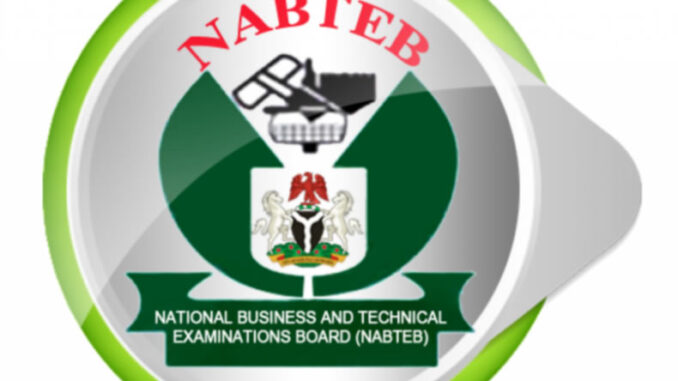
NABTEB GCE 2024 SALESMANSHIP ANSWERS
NABTEB SALESMANSHIP OBJ:
1-10:DCADCADBDA
11-20: ADCDDDCDAC
21-30: AADCADCDCD
31-40: BACDACDADB
41-50: BAABADBACA
“`ANSWER FIVE(5) QUESTIONS ONLY“`
(1a)
Consumer behaviour refers to the study of individuals, groups, or organizations and the processes they use to select, purchase, use, and dispose of products, services, experiences, or ideas to satisfy their needs and desires.
(1b)
(i) Income levels
(ii) Employment rates
(iii) Inflation
(iv) Interest rates
(v) Consumer credit availability
(1c)
(i) Reference Groups: Social groups that consumers identify with or aspire to, influencing their purchasing decisions and product choices.
(ii) Word-of-Mouth: Recommendations or opinions shared within social groups, shaping consumers’ attitudes and purchasing decisions.
(iii) Social Status: Consumers may purchase products or services to signal their social status or affiliation with a particular group.
(iv) Group Norms: Social groups can establish norms or expectations around consumer behaviour, influencing individual purchasing decisions.
(v) Aspirational Groups: Consumers may be influenced by social groups they aspire to join, adopting their consumption patterns and product preferences.
~———————————————————-~
(2a)
Culture encompasses the shared beliefs, traditions, language, customs, and practices of a group of people. It shapes the values and norms of society, influencing individual behaviour, including their buying habits
(2b)
(i) Traditions: Influence the types of products people buy, especially during festivals or ceremonies.
(ii) Values: Shape preferences for sustainable or ethical products.
(iii) Language: Affects how advertisements and product information are interpreted.
(iv) Religion: Impacts the consumption of specific goods (e.g., dietary restrictions).
(2c)
(i) Introverted personality: Reserved individuals who prefer subtle and practical products. Their purchases often align with functionality over aesthetics.
(ii) Extroverted personality: Outgoing individuals who seek social engagement and may prefer bold, trendy, or statement-making items.
(iii) Conscientious personality: Highly organized and disciplined, these consumers value reliable, high-quality products that align with their long-term goals or ethical standards.
~———————————————————-~
(3a)
(i) Improves performance and productivity: Employees or individuals driven by motivation tend to achieve better results by focusing on tasks and goals.
(ii) Encourages innovation and creativity: Motivated individuals are more likely to think creatively and solve problems effectively.
(3b)
(i) Offer: One party must make a clear and definite offer to the other party, stating the terms and conditions of the agreement.
(ii) Acceptance: The other party must accept the offer, either verbally or in writing, without making any changes to the original terms.
(iii) Consideration: Both parties must provide something of value, known as consideration, in exchange for the other party’s promise or performance.
(iv) Intention to Create Legal Relations: Both parties must intend to create a legally binding agreement, with the understanding that the contract can be enforced by law.
(3c)
(i) Mutual agreement: Both parties decide to cancel the contract.
(ii) Fulfilment of obligations: The terms of the contract are completed as agreed.
(iii) Breach of contract: One party fails to meet their contractual obligations, giving the other party grounds for termination.
~———————————————————-~
(4a)
(i) Price: Consumers often weigh the cost of a product against their budget before making a decision.
(ii) Product quality: High-quality products tend to attract more customers and build trust.
(iii) Brand reputation: Well-known and trusted brands are often preferred over lesser-known ones.
(iv) Availability: Easy access to the product, whether online or in physical stores, influences purchasing decisions.
(4b)
(i) Competitive pricing: Auctions encourage buyers to bid against each other, potentially increasing the selling price.
(ii) Transparency: The process is open and visible, ensuring fairness and attracting a broader audience.
(4c)
(i) Allows buyers to own expensive items without paying upfront.
(ii) Makes budgeting easier with instalment payments.
(iii) Provides immediate access to goods while spreading the cost.
~———————————————————-~
(5a)
(i) A promissory note is a promise by one party to pay another, while a bill of exchange is an order from one party to another to pay a third party.
(ii) A promissory note involves only two parties, whereas a bill of exchange includes three: the drawer, drawee, and payee.
(5b)
(i)Provides financial support by advancing cash based on outstanding invoices.
(ii) Assumes the risk of bad debts for the client.
(iii) Manages credit control and collects payments on behalf of clients.
(iv) Specializes in working with businesses with high accounts receivable turnover
(5c)
(i) Act in good faith and loyalty to the principal.
(ii) Provide accurate and regular updates on the status of their activities.
(5d)
(i) Pay the agent the agreed commission or fees.
(ii) Reimburse the agent for any expenses incurred during their duties.
(iii) Provide the agent with the necessary resources and information to perform their work.
~———————————————————-~
(6a)
(i) Combines financial resources of partners for greater business capital.
(ii) Shares responsibility, allowing specialization based on each partner’s skills.
(iii) Reduces individual risk as it is spread among all partners.
(iv) Provides mutual support and shared decision-making.
(6b)
(i) Personal savings: Money set aside by the owner.
(ii) Loans from family or friends: Informal borrowing.
(iii) Bank loans: Borrowed funds from financial institutions.
(iv) Business profits: Reinvested earnings from the business.
(6c)
(i) Separate legal entity.
(ii) Limited liability for shareholders.
(iii) Ownership represented by shares.
~———————————————————-~
(7a)
(i) Builds credibility: Customers trust salespeople who demonstrate a thorough understanding of the product.
(ii) Enhances customer satisfaction: Accurate information helps match products to customer needs.
(iii) Increases sales success: Confidence in the product allows the salesman to handle objections effectively.
(7b)
(i) Good communication skills: Ability to convey information clearly and persuasively.
(ii) Charismatic personality: Engages customers positively, building rapport.
(iii) Product expertise: Deep understanding of product features and benefits.
(7c)
(i) Builds strong customer relationships.
(ii) Allows for tailored solutions to customer needs.
(iii) Facilitates immediate feedback and interaction
~———————————————————-~

Leave a Reply